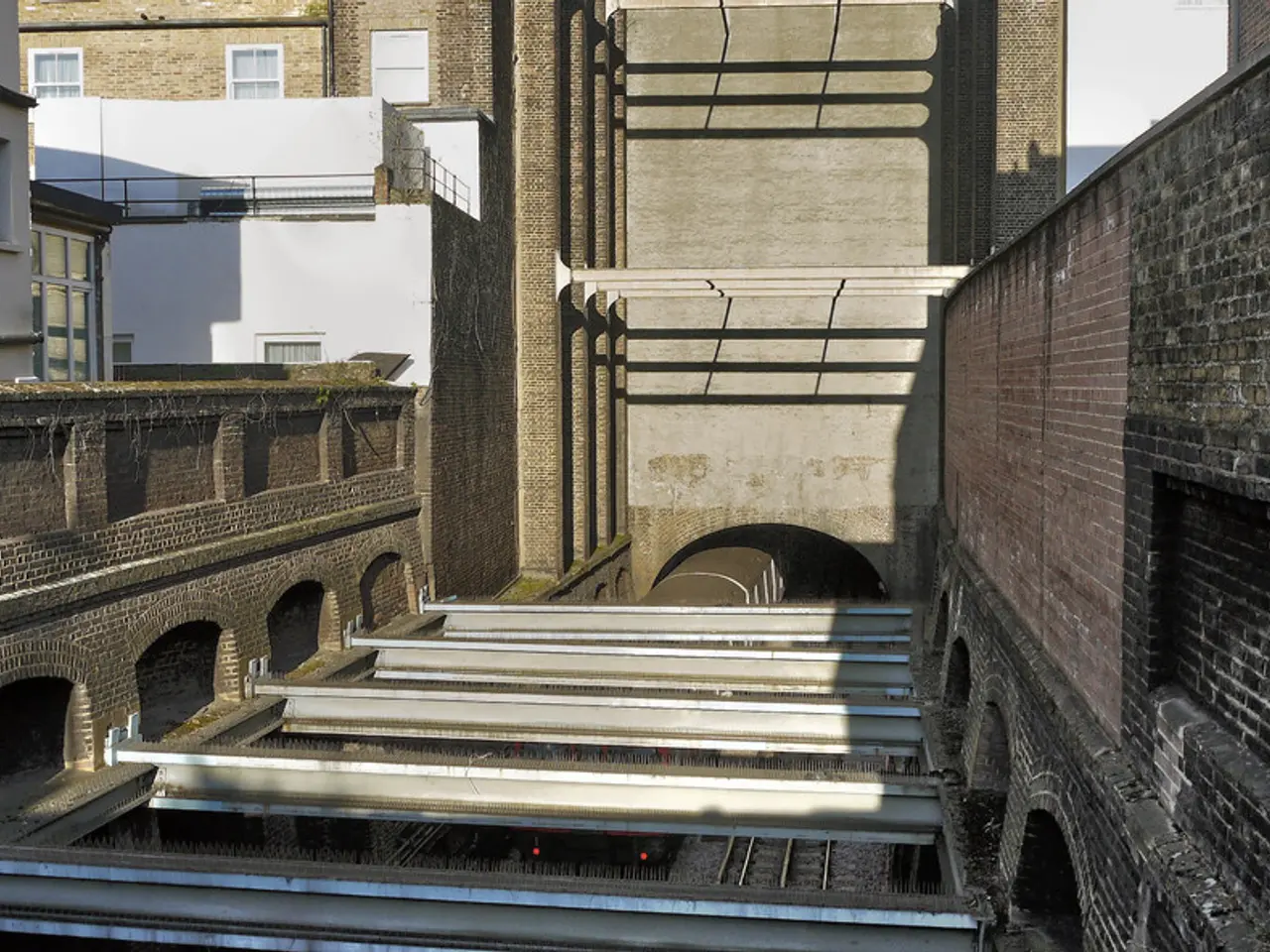Railway Authority carrying on with extra expenses from Stuttgart 21 project
The German railway company, Deutsche Bahn, has been dealt a significant financial blow after a court ruling determined that it will bear the brunt of the cost overruns for the Stuttgart 21 project. The project, which involves the construction of a new main railway station, numerous tunnels, and new railway stations, among other infrastructure, has seen its completion date delayed multiple times since construction began in 2010.
The heart of Stuttgart 21 is the new underground main station, a through station unlike the current terminal station. The legal dispute between Deutsche Bahn and the project partners centered on the interpretation of a "talking clause" in the 2009 financing agreement for dealing with possible cost increases.
This clause, known as the "Redegerücht", was intended to manage cost overruns by clearly defining which parties bear the financial risk of exceeding the initial budget estimates. According to available information, the 2007 agreement among Deutsche Bahn (DB), the Federal Government, and the State of Baden-Württemberg set initial funding shares and also recognized the possibility of cost increases beyond the estimated €2.8 billion budget.
Specifically, the agreement allowed for cost overruns up to €1 billion, with the State of Baden-Württemberg agreeing to cover up to €780 million and DB up to €220 million. This means that cost overruns are shared, but the greater financial burden lies with the regional government rather than DB or the federal government.
The interpretation of the "talking clause" implies that while the main financial responsibility for overruns falls on Baden-Württemberg and DB according to their agreed limits, the federal government does not bear cost overruns beyond its €500 million contribution. This allocation was part of the negotiations to finalize project approval, aiming to control financial risk distribution explicitly among participants.
The Administrative Court had dismissed corresponding lawsuits by Deutsche Bahn against the state of Baden-Württemberg, the city of Stuttgart, the Stuttgart Region Association, and the Stuttgart Airport. The Administrative Court of Appeal in Mannheim has now rejected Deutsche Bahn's application for leave to appeal against this ruling.
The VGH (Administrative Court of Appeal in Baden-Württemberg) has found no grounds that would justify the admission of Deutsche Bahn's appeal. This means that Deutsche Bahn may have to bear billions in costs from the Stuttgart 21 project, as the current additional costs of at least 6.5 billion euros are likely to remain with the company after the decision.
Some regional traffic will continue to end at the old terminal station until July 2027 due to the work required to connect the new infrastructure to the existing tracks. Deutsche Bahn plans to partially put Stuttgart 21 into operation by the end of 2026. Long-distance and some regional traffic will start using the new underground station in December 2026.
Despite the financial burden, Deutsche Bahn remains committed to the project, viewing it as a crucial step towards modernizing Germany's railway infrastructure. The company is now left to manage the financial implications of the court ruling and to complete the project as efficiently as possible.
[1] Source: Deutsche Bahn AG, Bundesministerium für Verkehr und digitale Infrastruktur, Land Baden-Württemberg (2007). Finanzierungsvereinbarung für den Stuttgarter 21-Projekt.
- The financial burden of the cost overruns for the Stuttgart 21 project, a massive transportation infrastructure project involving public-transit and transportation sectors, falls heavily on Deutsche Bahn, as the Administrative Court of Appeal in Mannheim has rejected their appeal, leading them to possibly bear billions in costs.
- The Stuttgart 21 project, a significant undertaking in both the public-transit and finance industries, is pushing Deutsche Bahn to modernize Germany's railway infrastructure despite the financial challenges, with plans to partially operate it by the end of 2026.




